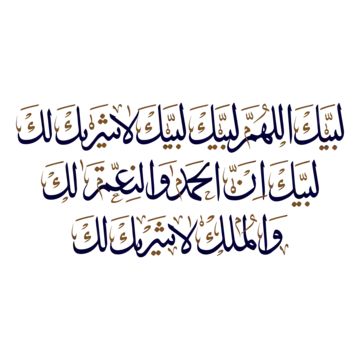What is Dhul Hijjah? Why is it so Special?
Dhul Hijjah (ذو الحجة) is the 12th and final month of the Islamic lunar calendar, and it is the month during which Hajj, the pilgrimage to Makkah, takes place. It is a time of immense spiritual significance for Muslims worldwide.
The Blessed First Ten Days of Dhul Hijjah
The first ten days of Dhul Hijjah are considered extremely blessed. The Prophet Muhammad (ﷺ) said:
“There are no days during which righteous deeds are more beloved to Allah than these days,”
— [Sahih al-Bukhari]
Muslims are encouraged to increase worship, fasting, prayer, and good deeds during these days.
Renewing Intentions for Dhul Hijjah and Daily Life
Every action can be transformed into worship by renewing intentions. Whether you’re working, studying, or caring for your family, align your actions with a sincere intention to please Allah:
-
Working: “My intention is to earn halal income.”
-
Studying: “My intention is to seek beneficial knowledge.”
-
Family care: “My intention is to express gratitude for my blessings.”
“Indeed, Allah loves those who seek knowledge.” — [Sahih Muslim]
Fasting in Dhul Hijjah: The Day of Arafah
The Prophet (ﷺ) fasted during the first nine days of Dhul Hijjah, except for the 10th, which is Eid al-Adha. The most special day to fast is the Day of Arafah (9th Dhul Hijjah).
“Fasting on the day of Arafah expiates the sins of the previous and the coming year.” — [Sahih Muslim]
Increase Your Good Deeds: Simple Acts That Matter
During Dhul Hijjah and especially Hajj, small acts of kindness count:
-
Smiling at others
-
Complimenting people
-
Preparing meals
-
Giving charity
-
Sharing knowledge
-
Helping others
-
Making Istighfar (seeking forgiveness)
Why Do Muslims Perform Hajj?
Hajj is a pilgrimage commanded by Allah and was performed by Prophet Muhammad (ﷺ) following the footsteps of earlier Prophets like Ibrahim (AS) and Ismail (AS).
Allah revealed to Ibrahim (AS) to sacrifice his son Ismail (AS). When Shaytan tried to stop him three times, Ibrahim (AS) threw stones at Shaytan, which is symbolized by pilgrims throwing stones at the Jamarat during Hajj.
Quranic Significance of Arafat
Muslims spend the 9th day of Dhul Hijjah at Arafat making dua (supplication). This day is a special time for forgiveness and mercy.
“This day I have perfected for you your religion and completed My favor upon you and have approved Islam as religion for you.”
— Surah Al-Ma’idah 5:3 (وَأَتْمَمْتُ لَكُمْ دِينَكُمْ وَأَكْمَلْتُ عَلَيْكُمْ نِعْمَتِي وَرَضِيتُ لَكُمُ الْإِسْلَامَ دِينًا)
Ihram: Symbol of Equality and Purity
During Hajj, men wear simple white garments called Ihram. This removes all distinctions of wealth and status; everyone stands equal before Allah. It emphasizes that true worth lies in piety and righteousness, not material wealth.
The Story of Zamzam Water
The well of Zamzam appeared miraculously when Prophet Ismail (AS) and his mother Hajar were left alone in the desert. Hajar ran between the hills of Safa and Marwah searching for water. By Allah’s mercy, water sprang from the ground, becoming the Zamzam well.
Today, pilgrims drink Zamzam water as a symbol of faith, hope, and divine mercy.
Hajj Rituals: Step-by-Step Guide
1st Day of Hajj
-
Wear Ihram
-
Perform 2 Rak’ahs Nafl prayer
-
Make the intention (Niyyat) for Hajj
-
Perform Tawaf of the Kaaba
-
Pray 2 Rak’ahs near Maqam-e-Ibrahim
-
Drink Zamzam water
-
Perform Sa’i between Safa and Marwah
-
Recite Talbiyah repeatedly
-
Go to Mina before Zuhr prayer
2nd Day of Hajj
-
Perform Fajr prayer in Mina
-
Go to Arafat
-
Perform Zuhr and Asr prayers in Arafat
-
Stay until sunset (do not pray Maghrib yet)
-
After sunset, go to Muzdalifah
-
Perform Maghrib and Isha prayers there
-
Collect 7 pebbles for stoning Jamarat
3rd Day of Hajj
-
After Fajr prayer, go to Mina
-
Stone Jamarat-ul-Aqaba
-
Perform animal sacrifice (Qurbani)
-
Remove Ihram
-
Go to Masjid al-Haram
-
Perform Tawaf al-Ifadah
-
Pray 2 Rak’ahs near Maqam-e-Ibrahim
-
Drink Zamzam water
-
Return to Mina at night
4th Day of Hajj
-
After Zuhr prayer, stone all three Jamarat
-
Stay in Mina
5th Day of Hajj
-
After Zuhr prayer, stone all three Jamarat again
-
Before sunset, leave Makkah
-
Before leaving, perform Tawaf al-Wida (Farewell Tawaf)
🕋 خطبہ حج (Hajj Khutbah) — Arabic with Urdu Translation
📜 Arabic Text of Hajj Khutbah (خطبہ حجة الوداع)
الْحَمْدُ لِلَّهِ نَحْمَدُهُ وَنَسْتَعِينُهُ وَنَسْتَغْفِرُهُ، وَنَعُوذُ بِاللَّهِ مِنْ شُرُورِ أَنْفُسِنَا، وَمِنْ سَيِّئَاتِ أَعْمَالِنَا، مَنْ يَهْدِهِ اللَّهُ فَلَا مُضِلَّ لَهُ، وَمَنْ يُضْلِلْ فَلَا هَادِيَ لَهُ، أَشْهَدُ أَنْ لَا إِلٰهَ إِلَّا اللَّهُ وَحْدَهُ لَا شَرِيكَ لَهُ، وَأَشْهَدُ أَنَّ مُحَمَّدًا عَبْدُهُ وَرَسُولُهُ.
أُوصِيكُمْ عِبَادَ اللَّهِ بِتَقْوَى اللَّهِ، وَأَحُثُّكُمْ عَلَى طَاعَتِهِ، وَأَسْتَفْتِحُ بِمَا هُوَ خَيْرٌ.
أَيُّهَا النَّاسُ، اسْمَعُوا قَوْلِي، فَإِنِّي لَا أَدْرِي لَعَلِّي لَا أَلْقَاكُمْ بَعْدَ عَامِي هَذَا، فِي مَوْقِفِي هَذَا.
إِنَّ دِمَاءَكُمْ وَأَمْوَالَكُمْ عَلَيْكُمْ حَرَامٌ، كَحُرْمَةِ يَوْمِكُمْ هَذَا، فِي بَلَدِكُمْ هَذَا، فِي شَهْرِكُمْ هَذَا.
أَلَا هَلْ بَلَّغْتُ؟ اللَّهُمَّ اشْهَدْ.
📖 اردو ترجمہ: خطبہ حجة الوداع
تمام تعریفیں اللہ کے لیے ہیں، ہم اسی کی حمد کرتے ہیں، اسی سے مدد چاہتے ہیں اور اسی سے مغفرت مانگتے ہیں، اور اپنے نفس کی برائیوں اور اپنے اعمال کی خرابیوں سے اللہ کی پناہ چاہتے ہیں۔ جس کو اللہ ہدایت دے، اسے کوئی گمراہ نہیں کرسکتا اور جسے وہ گمراہ کر دے، اسے کوئی ہدایت نہیں دے سکتا۔ میں گواہی دیتا ہوں کہ اللہ کے سوا کوئی معبود نہیں، وہ یکتا ہے، اس کا کوئی شریک نہیں، اور میں گواہی دیتا ہوں کہ محمد صلی اللہ علیہ وسلم اللہ کے بندے اور اس کے رسول ہیں۔
اے اللہ کے بندو! میں تمہیں اللہ سے ڈرنے کی وصیت کرتا ہوں، اور اس کی اطاعت کی تاکید کرتا ہوں۔
اے لوگو! میری بات غور سے سنو، میں نہیں جانتا کہ شاید اس سال کے بعد میں اس جگہ تم سے ملاقات نہ کر سکوں۔
بیشک تمہارا خون اور مال ایک دوسرے پر حرام ہیں، جس طرح یہ دن، یہ مہینہ، اور یہ شہر تمہارے لیے حرمت والا ہے۔
خبردار! کیا میں نے تم تک اللہ کا پیغام پہنچا دیا؟ اے اللہ! گواہ رہ۔
🕋 English Translation of Hajj Khutbah (Farewell Sermon excerpt)
All praise is due to Allah. We praise Him, seek His help, and ask for His forgiveness. We seek refuge in Allah from the evil of our souls and from the bad consequences of our deeds. Whomever Allah guides, none can misguide him; and whomever He misguides, none can guide him. I bear witness that there is no god but Allah alone, He has no partner, and I bear witness that Muhammad (peace be upon him) is His servant and Messenger.
O servants of Allah! I advise you to fear Allah and encourage you to obey Him.
O people! Listen to my words carefully, for I do not know whether I will ever meet you again at this place after this year.
Indeed, your blood (lives) and your wealth are sacred and forbidden upon one another—just as sacred as this day of yours, in this month of yours, in this city of yours.
Beware! Have I conveyed the message to you? O Allah, be my witness.
📌 نوٹ:
یہ خطبہ رسول اللہ ﷺ نے حجة الوداع کے موقع پر عرفات کے میدان میں دیا تھا۔ یہ انسانیت کے لیے ایک مکمل منشور ہے، جس میں مساوات، انصاف، عورتوں کے حقوق، اور ایک مثالی معاشرے کے اصول بتائے گئے۔
🕋 لبیک اللهم لبیک (Talbiyah During Hajj)
📜 Arabic:
لَبَّيْكَ اللَّهُمَّ لَبَّيْكَ، لَبَّيْكَ لَا شَرِيكَ لَكَ لَبَّيْكَ، إِنَّ الْحَمْدَ وَالنِّعْمَةَ لَكَ وَالْمُلْكَ، لَا شَرِيكَ لَكَ
📖 Transliteration:
Labbayka Allahumma labbayk, labbayka laa shareeka laka labbayk, innal-hamda wan-ni‘mata laka wal-mulk, laa shareeka lak.
📘 Urdu Translation:
میں حاضر ہوں اے اللہ! میں حاضر ہوں، تیرا کوئی شریک نہیں، میں حاضر ہوں۔ بیشک تمام تعریفیں اور نعمتیں تیرے ہی لیے ہیں، اور بادشاہی بھی۔ تیرا کوئی شریک نہیں۔
:
🕋 English Translation of Labbaik Allahumma Labbaik (Talbiyah)
“Here I am, O Allah, here I am. There is no partner with You, here I am. Surely all praise, blessings, and sovereignty belong to You. There is no partner with You.”
📌 نوٹ:
یہ تلبیہ ہر حاجی حج کے دوران بار بار پڑھتا ہے، خاص طور پر احرام باندھنے کے بعد۔ یہ مکمل اطاعت، عاجزی، اور اللہ کی توحید کا اعلان ہے۔
Frequently Asked Questions (FAQs) about Hajj
Q1: What is the significance of Ihram in Hajj?
A: Ihram represents purity, humility, and equality before Allah. It marks the start of the sacred state in which certain actions are prohibited to maintain spiritual focus.
Q2: Why do pilgrims throw stones at the Jamarat?
A: This act symbolizes Prophet Ibrahim’s rejection of Shaytan’s temptations by throwing stones at him.
Q3: What is the importance of the Day of Arafat?
A: It is the climax of Hajj, a day of forgiveness, mercy, and repentance. Allah’s religion was perfected on this day.
Q4: What is Tawaf al-Ifadah?
A: It is the essential circumambulation of the Kaaba performed after returning from Mina, symbolizing submission and devotion to Allah.
Q5: Can women perform Hajj without Ihram?
A: No, Ihram is mandatory for all pilgrims, men and women, symbolizing equality and sanctity.
Q6: What are the rewards of fasting on the Day of Arafat?
A: It expiates the sins of the previous and coming year, a great mercy from Allah.
Conclusion
Hajj is not just a physical journey but a spiritual renewal. It brings Muslims closer to Allah, unites the Ummah, and follows the footsteps of Prophets. Understanding its rituals, significance, and Quranic basis enriches the experience and fulfills a lifetime dream for millions.


